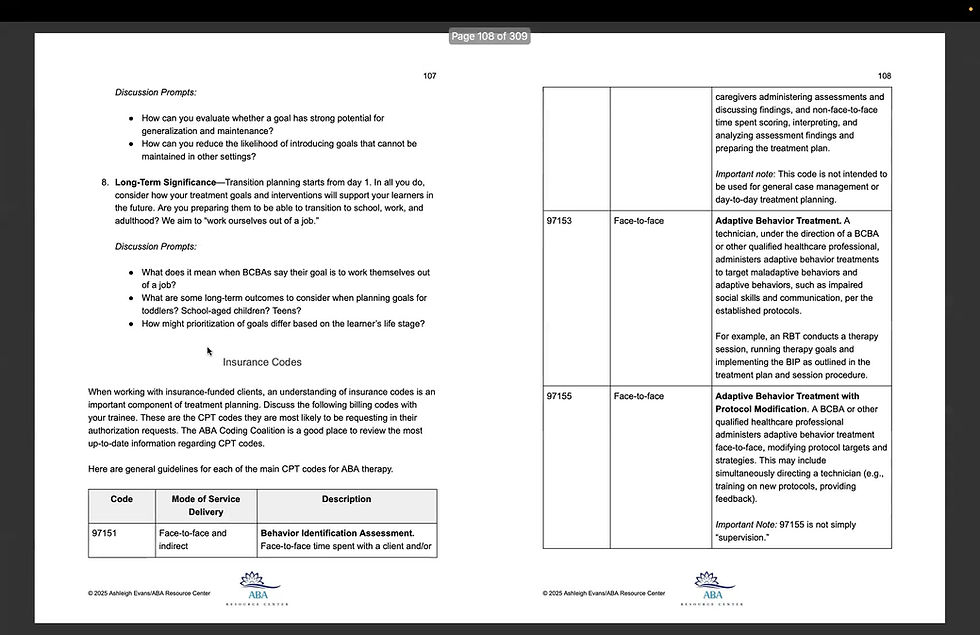The 4 Eligibility Pathways for BCBA Certification
- Ashleigh

- Sep 26, 2022
- 4 min read
Updated: Sep 5
The Behavior Analyst Certification Board (BACB) certifies board certified behavior analysts (BCBAs), Registered behavior technicians (RBTs), and board certified assistant behavior analysts (BCaBAs). As of January 2022, the 5th edition task list was initiated, in addition to new eligibility criteria for aspiring behavior analysts.
The BCBA handbook is the best resource for a more in-depth overview of the new requirements and changes to the task list, but we'll provide a brief overview.
IMPORTANT NOTE: This article is outdated, as it was originally written in 2022. There have been many updates since then For an updated understanding of the pathways to BCBA certification, review the blog, How to Become Certified as a BCBA. If you continue reading, we encourage you to use caution and cross-reference the current standards.
2022 Eligibility Requirements for BCBA Certification
The eligibility to test for the BCBA exam includes criteria related to your degree, additional course sequences, location of residence, and fieldwork experience hours.
Jurisdiction
Location of residence is one requirement for becoming a BCBA. As of the present date, the BACB is accepting applications from any location. However, starting on January 1st, 2023, applicants will only be accepted for those living in the United States, Canada, Australia, and the United Kingdom.
For those living in the United Kingdom, the BACB will no longer certify applications after 2025. The United Kingdom is in the process of creating its own credentialing system for behavior analysts. It is expected that this will be implemented by 2026.
Pathways
There are four eligibility pathways.
Master’s degree or higher from ABAI-accredited or ABAI-recognized behavior analysis degree program
A graduate degree plus a behavior-analytic course sequence
A graduate degree plus faculty teaching and research
A doctoral degree plus post-doctoral experience with ABA.
Watch my BCBA 2022 Eligibility video for more information on the requirements for each pathway.
.
Educational Requirements
Educational requirements for becoming a BCBA include a minimum of a master's degree. This degree must come from an accredited university and be obtained in 2015 or later. If you have a master's degree in behavior analysis or another related ABAI-accredited or recognized program, you may pursue certification through pathway one without additional coursework.
Through pathway 2, on top of a master’s degree, you would need 315 credit hours in behavior analysis. A grade average of 'C' or higher is required as well.
The BACB recently made the decision to eliminate pathways 3 and 4. For those currently on one of those pathways, you still have until 2027 before those pathways are no longer accepted. Pathway 3 requires a master’s degree from a qualifying institution. In addition, you must have at least 3 years of full-time faculty work and required research. Pathway 4 requires a doctoral degree, plus 10 years of full-time experience in ABA post-doctoral.
Supervision Requirements
Successful completion of supervised fieldwork hours is another component of becoming a behavior analyst. This is a vital step in learning how to apply the concepts to actual situations with clients. Pathways 1-3 require 2,000 hours of fieldwork with 5% being supervised. Alternatively for those who want to complete supervision hours sooner, you could complete 1,500 hours with 10% being supervised. Those pursuing pathway 4 only require 500 fieldwork hours, 5% being supervised.
BCBA Supervisor Requirements
Some employers provide employees with supervision. Others who do not have a BCBA on-site or their BCBA is at capacity, may contract with external supervisors to meet their needs.
Supervisors must:
Be an active BCBA or BCBA-D without any current disciplinary sanctions
Must be certified for at least 1 year or certified less than 1 year, but receiving monthly consultation from a more experienced BCBA.
Must meet ongoing supervision CEU requirements
You can check on the BACB’s website to see if a BCBA is qualified to supervise based on the BACB’s minimum qualifications.
Testing
The final step toward behavior analyst certification is a passing score on a board examination. This step is vital in demonstrating you have an understanding of the concepts and how they are applied.
In order to sit for this exam, you will need to complete an application in your BACB account. To avoid delays, make sure you double-check that you have met all requirements before applying. The exam application fee is currently $245.
Upon approval, you will be emailed instructions on registering for an exam time slot. There is an additional fee of $125 paid to Pearson Vue. If the BACB approves your application, you will be sent instructions for registering to take the exam.
Examination
The BCBA exam has a total of 185 questions, each with 4 possible responses. The exam consists of questions related to the 5th edition of the task list. Your score is actually based on 175 questions, as 10 of the questions are not scored. Those 10 questions are pilot questions that may be used in future exams. You have 4 hours to complete this exam.
Certain sections of the task list contain more questions than others, with the behavior change procedures section having the most questions (20% of the exam).
The exam includes the following number of questions per section of the task list:
Philosophical underpinnings: 6 (3.43% of exam)
Concepts and principles: 32 (18.29% of exam)
Measurement, data and interpretation: 21 (12% of exam)
Experimental design: 12 (6.86%)
Ethics: 18 (10.29% of exam)
Behavior assessment: 18 (10.29% of exam)
Behavior change procedures: 35 (20% of exam)
Selecting and implementing interventions: 16 (9.14% of exam)
Personnel supervision and management: 17 (9.81% of exam)
Final Thoughts
There are many opportunities for pursuing certification as a BCBA. Completing coursework and fieldwork related to behavior analysis is necessary to develop the competencies and skills necessary for a behavior analyst. Review the BCBA handbook to further explore the requirements for becoming a BCBA.
References
https://www.bacb.com/wp-content/uploads/2022/01/BCBAHandbook_220415.pdf
































Comments